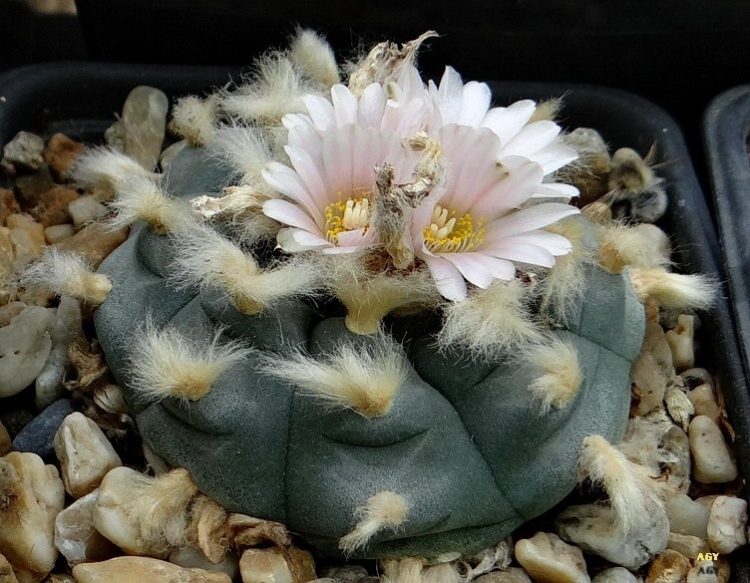Peyote, which is a species of Lophophora williamsii, is a small, flat cactus that grows in the southwestern United States and northern Mexico. The cactus has a long history of being spiritual and culturally important, especially to indigenous peoples in its native range. It has also gotten a lot of attention in the UK and other places for its unique qualities and possible medical uses. This article will talk about many things about Lophophora williamsii UK, such as its botanical features, cultural importance, legal standing, and scientific studies.
What Makes Lophophora Williamsii UK a Unique Plant
Lophophora williamsii UK is a small cactus that looks like a button and gets to be 2–7 cm tall and 4–12 cm across. The cactus is blue-green and has small, white, fuzzy tufts all over it. These are called trichomes. The trichomes help the cactus keep its water in its dry environment. The cactus also has a taproot that can go down up to 20 cm into the ground. This lets it get water and food when there isn’t enough.
The flowers of Lophophora williamsii UK are one of the things that make it stand out. They are pink or white and bloom in the summer. After the flowers come small fruits that are pink or red and have black seeds inside them. Collectors value these seeds a lot, and they are often used to make more plants.
What Does Lophophora Williamsii UK Mean in Culture?
Lophophora williamsii UK has a long history of being important to the culture and religion of the people who live in its native range. The Huichol people of Mexico have used the cactus for hundreds of years in religious rites and traditional ways to heal.
The Huichol people think of Lophophora williamsii UK as a holy plant, and they call it “hikuri” or “peyotl.” A lot of different traditional medicines use the cactus because it is thought to have strong healing qualities. There are also religious rituals that use it as a way to connect with God and become spiritually awake.
People and groups outside of Lophophora williamsii UK’s native range, including in the UK, are more interested in the cactus because of its cultural importance. Some people in the UK have tried to learn more about the cactus’s traditional uses and cultural importance, while others have tried to grow it for different reasons.
What the law says about Lophophora Williamsii UK
Lophophora williamsii UK is a banned substance in many countries, including the UK. This is because it has cultural and possibly medicinal value. There is a law in the UK called Schedule 1 of the Misuse of Drugs Act 1971 that says you can’t have, grow or sell cactus without a licence from the Home Office.
Some people think that the cactus should be legal so that it can be used for traditional cultural and medicinal reasons. This has caused some controversy and debate about the plant’s legal status in the UK. Some people have said that the cactus’s present legal situation is too strict and doesn’t take into account its cultural and historical importance.
Studying the plant Lophophora Williamsii in the UK
Lophophora williamsii UK has been the subject of scientific research in recent years, especially in the area of medicinal chemistry, even though it is illegal. There are many chemicals in the cactus, and mescaline is one of them. It has been studied for its possible medical uses.
Studies have shown that mescaline and other alkaloids discovered in Lophophora williamsii UK might be useful for treating a number of mental illnesses, such as addiction, sadness, and anxiety. But a lot of this research is still in its early stages. More research is needed to fully understand the cactus’s possible medical uses.
Lophophora williamsii UK has been studied for more than just its possible medical uses. It has also been looked at for its ecological and protection value. Because of habitat loss and over-harvesting in its native area, the cactus is thought to be a vulnerable species. Some researchers think that efforts should be made to protect wild populations of the cactus and make sure it will survive in the long run.
Growing Lophophora Williamsii in the UK
Even though it is illegal, some people in the UK and other parts of the world have tried to grow Lophophora williamsii UK for a variety of reasons, such as for medical or cultural reasons, or just for fun.
The cactus needs specific growing conditions and can be hard to grow from seeds, so it can be hard to grow Lophophora williamsii UK. The cactus likes dirt that drains well and bright, indirect light. It can be hurt by too much water and changes in temperature.
People in the UK who want to grow Lophophora williamsii should be aware of the legal risks and possible outcomes of having and growing the plant. Researching and understanding the local rules and laws about growing and owning Lophophora williamsii UK is important before you try to grow it.
What You Should Know About the Ethics of Lophophora Williamsii UK
There are some moral issues that come up when people use and grow Lophophora williamsii UK. This is especially true when you think about how important it is to the local peoples of its range for their culture and spirituality.
Some people say that people and businesses outside of the native range of Lophophora williamsii UK taking it and selling it as a product is a form of cultural appropriation and may be disrespectful to the customs and ways of life of indigenous communities.
Others are worried about the long-term effects and damage on the environment of collecting wild Lophophora williamsii UK for business reasons. People who pick too many cactus plants can hurt the areas where they grow and reduce the number of wild plants that survive.
People who are interested in Lophophora williamsii UK should think about these moral issues and treat the cactus with care and cultural awareness. For example, learning about the cactus’s cultural and historical importance, helping to protect wild populations, and being aware of how its cultivation and use might affect native communities and landscapes are all things that can help.
In conclusion
The Lophophora williamsii UK cactus is very interesting and complicated. It has a long history of being important in spiritual and cultural ways. There has been some disagreement about the cactus’ legal position in the UK and other parts of the world. However, it is still an important subject for cultural and scientific study.
People who want to learn more about Lophophora williamsii UK should treat the cactus with care and cultural awareness, keeping in mind how important it is to native communities and how growing and using it might affect the environment. By doing this, we can learn more about this special and important plant and value it more.













